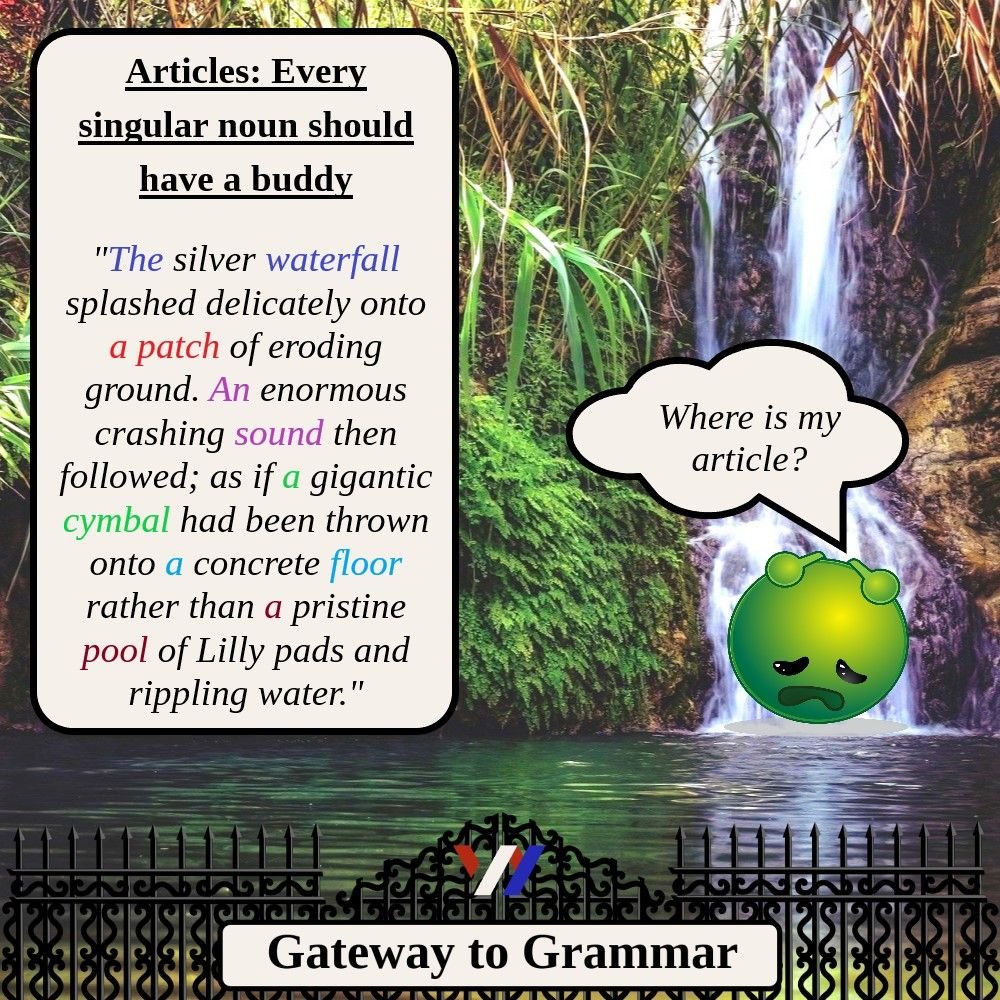Gateway to Grammar: Every singular noun needs an article
Many people who learn English as a foreign language have a problem with articles (the/a/an). Often this is because their native language does not use them in the same way that English does. Today I’m here to remind you that every singular noun needs a buddy (friend).
What do I mean by a singular noun? Well, a noun is a thing. Things can be people, boxes, buildings, ideas, houses, cats, elephants, suitcases, sounds… almost anything. Nouns are the names of things. Singular nouns are when there is only ONE of that thing. For example: “a car” is a singular noun, but “cars” is a plural noun because the “s” at the end shows us there is more than one car.
The rule to remember is that whenever we write or say a singular noun it needs an article or it gets lonely.
• Correct: “I picked up a heavy chair” (the singular noun “chair” has its friend “a”)
• Incorrect: “I picked up heavy chair” (the singular noun “chair” has no friends and is crying).
Giving each singular noun an article buddy seems easy until you remember that adjectives and adverbs can go after the article and before the singular noun. This can start to push the friends far apart. This is OK though, singular nouns and their articles are very close friends and a little distance is not a problem if they are in the same sentence:
• Correct: “A catastrophic tidal wave crashed down”
• Incorrect: “Catastrophic tidal wave crashed down”
• Correct: “I have a very tiny little blue and polka dot mouse toy”
• Incorrect: “I have very tiny little blue and polka dot mouse toy”
Now you know that every singular noun needs a friendly article, it is your responsibility to never let a singular noun be lonely!

